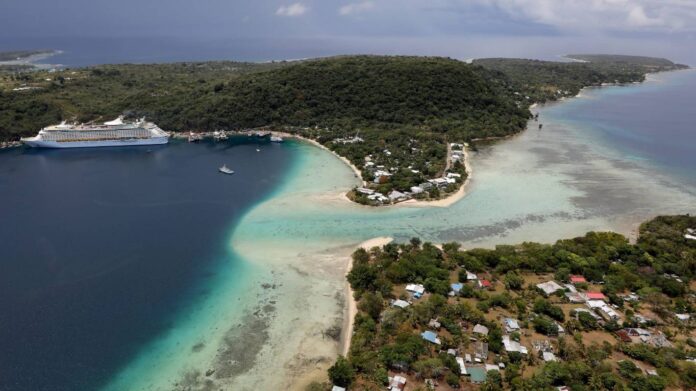Travel in the Pacific is trailing the rest of the world – two years on from Covid-19 – and the region should expect a bumpy recovery, the United Nations says.
While tourism is surging in Europe and America, the Pacific is struggling despite many of the islands having reopened to international visitors.
The tourist figures for the Pacific and Asia regions will remain at 30% this year compared to pre-pandemic levels due to stricter policies and restrictions, data from the UN World Tourism Organisation (UNWTO) shows.
But Tourism Industry Aotearoa (TIA) says that’s not expected to be the case in New Zealand.
READ MORE:
* Tourism recovery will be a long haul journey
* Covid is set to cost the tourism industry NZ$2.3 trillion this year. Omicron could make it worse
* S&P says NZ one of the better performing Asia-Pacific economies
* Think countries are opening up now there’s a vaccine? Think again
Europe, a top spot for Kiwis, is leading the global tourism recovery with more than four times as many international visitors as in the first five months of 2021 (+350%).
The UN data also showed that in the first five months of this year, visitors to Europe were down 36% on pre-pandemic levels.
For the Pacific and Asia regions, tourist numbers were below 90% of what they were two years ago.
In a statement, the United Nations said prior to Covid-19, there were up to five Chinese carriers with several in the Pacific that no longer fly to the region at present.
MARTIN DE RUYTER/STUFF
Tourism Minister Stuart Nash says the target market for New Zealand is high-quality visitors who will spend a bit more and stay a bit longer.
The UN said other factors weighing in on the recovery of international tourism included the economic environment, higher transport and accommodation costs, ongoing pandemic/uneven vaccine roll-out, lower consumer confidence and the lack of co-ordinated response among countries.
Of those visitors, about five in six were non-New Zealand citizens.
In 2019, there were 3.9 million visitors to New Zealand. As of June this year, 310,000 arrivals were recorded, up 124,000 from June 2021.
Tourism Aotearoa found that China, a key market for the Pacific, being closed was another major factor in the drop in arrivals in the region.
“China was our second-biggest visitor market after Australia,” TIA chief executive Rebecca Ingram said.
Tourism Fiji
Tourists visiting Fiji are no longer required to take a Covid-19 test on arrival.
“It’s important to note that the UNWTO report looks at the first five months of 2022, before New Zealand’s borders reopened with much of the world.
“Australian travellers were permitted from 12 April, and manuhiri from visa waiver countries, including the USA, UK, Europe, Japan, Korea and Singapore, were allowed from 1 May. Our borders have been fully open to visitors from anywhere in world since 1 August.”
New Zealand is not expecting visitors in numbers until summer.
“Our international manuhiri are returning. We are currently seeing mainly those visiting family and friends, and Australians coming over to enjoy our ski season,” Ingram said.
“We expect that international arrivals will increase through the summer which is traditionally our peak travel period, and we are hearing positive feedback from TIA members of healthy inquiry levels for summer.”
The UN expects Asia-Pacific to lag for the rest of this year.
But the outlook is more positive for New Zealand, Ingram said.
“The industry’s recovery is likely to take two or three years, but it appears that we will see a strong start for the 2022-23 summer.”
Covid-19 has forced many hotspots, especially in the Pacific, to rethink their approach to tourism.
In 2019, close to 1.8 million people visited the Pacific Islands with nearly 1 million of them headed to Fiji, the World Bank reported. There were 2.4 million arrivals in the Pacific in 2018.
Tourism officials in the region are optimistic they will recover in the next three years.
Pacific Asia Travel Association (PATA) chief executive Liz Ortiguera said there are initiatives to support its members and the broader industry.
Addressing the recent South Pacific Tourism Organisation Reopening the Pacific Series, Ortiguera said discussions included how the region could get that “connectivity back and up and running, and forge new opportunities”.
“We have tried to bring our members the resources to better understand how this recovery is unfolding,” she said.
“We changed our forecast updates more frequently from annually to quarterly and this was because of the source of our data which comes from the governments themselves – all 39 destinations.”
Ortiguera said with China still closed and much of the east and north Asia limited, travellers were looking to Europe and America.












